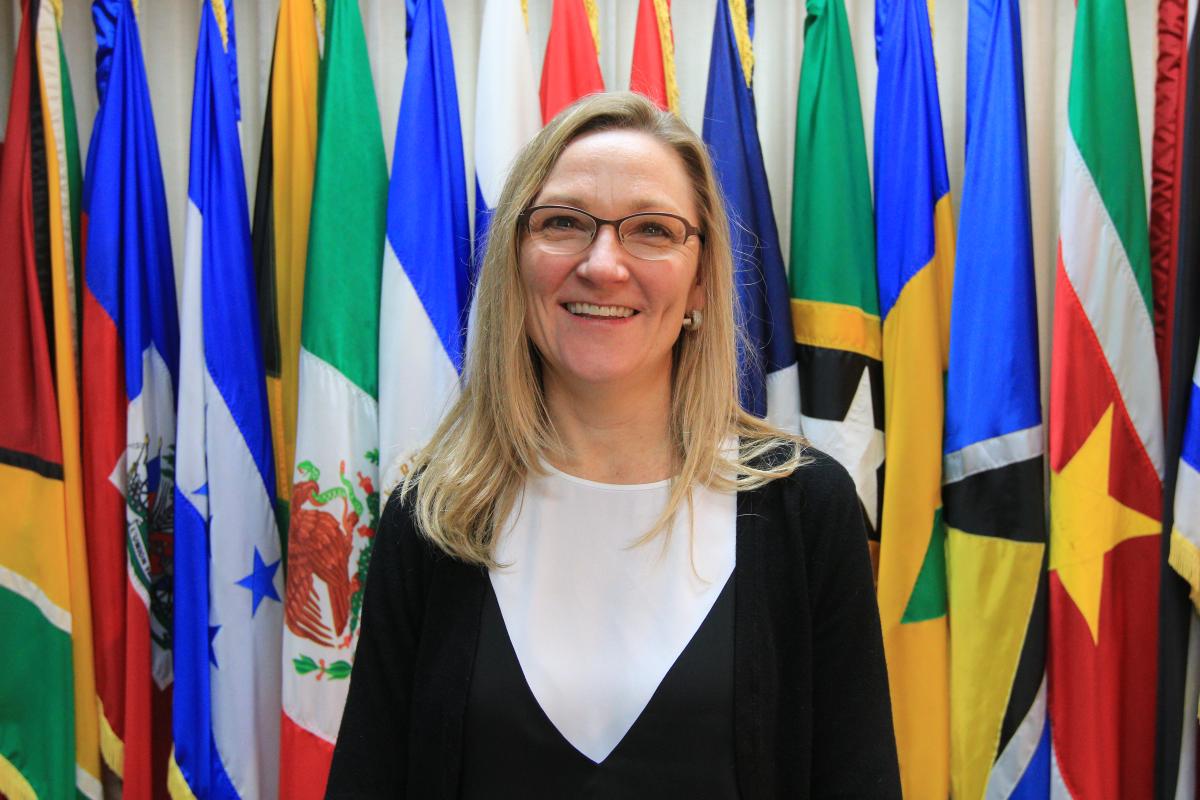“Agriculture and the environment should remarry”

San José, 26 February 2019 (IICA). The Latin American and Caribbean (LAC) region plays a pivotal role in the issue of global food security, as the producer of 13% of the food consumed in the world. However, if the region fails to adopt measures to mitigate the effects of climate change and to build sustainable and inclusive food systems, in the future it will not be able to produce enough food to satisfy even the demands of its own population.
Ginya Truitt Nakata, Lands Director for Latin America at The Nature Conservancy (TNC), shared this concern during a visit to the Headquarters of the Inter-American Institute for Cooperation on Agriculture (IICA) to attend a workshop organized by the World Bank, as part of an initiative to drive the development of dynamic, productive, and modern agriculture and food systems in the hemisphere.
Truitt Nakata, an agricultural and food security specialist, appealed for a change in our way of thinking and speaking about the environment, for the sake of the health of mankind and the planet.
She pointed out that, “The agriculture sector is completely dependent on the raw material provided by the environment. Whenever we produce something, we degrade the soil, and we continue to place value solely on the product and not on the productive future of the soil. It has to do with changing our mentality”.
The expert stressed the tremendous importance of abandoning our past tendency to separate both issues, maintaining that, “It is not that the environment runs counter to agriculture, nor agriculture to the environment. The divorce that took place should be a thing of the past. Given that each depends on the other, they should remarry”.
The specialist also emphasized the importance of crop-free zones, arguing that their well-being depends on the health of cultivated areas, and protecting the environment is impossible without agricultural biodiversity and the biodiversity of cultivated areas.
In conclusion, Ms. Nakata remarked that, “Both have a critical role to play and represent an opportunity for LAC, as we are the lungs of the planet. If we begin to work on these issues in a balanced way, we can serve as an example to the rest of the world”.
About TNC
The Nature Conservancy is a global environmental organization with a mission to conserve the land and water on which all life depends. Guided by science, it devises innovative and practical solutions to the world’s toughest challenges, enabling nature and people to thrive together. Working in 72 countries, it employs a collaborative approach, involving local communities, governments, the private sector, and other partners.
See the interview with Ginya Truitt Nakata here (Spanish only)
More information:
Institutional Communication Division